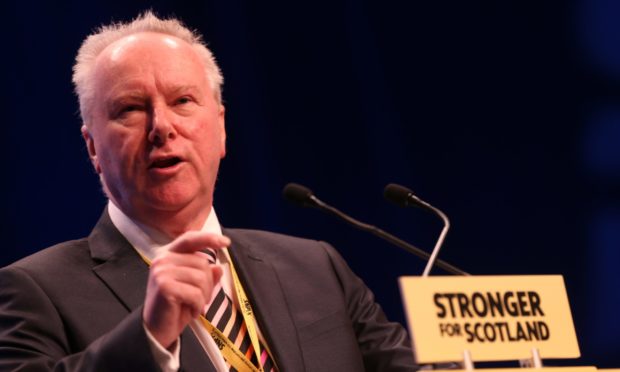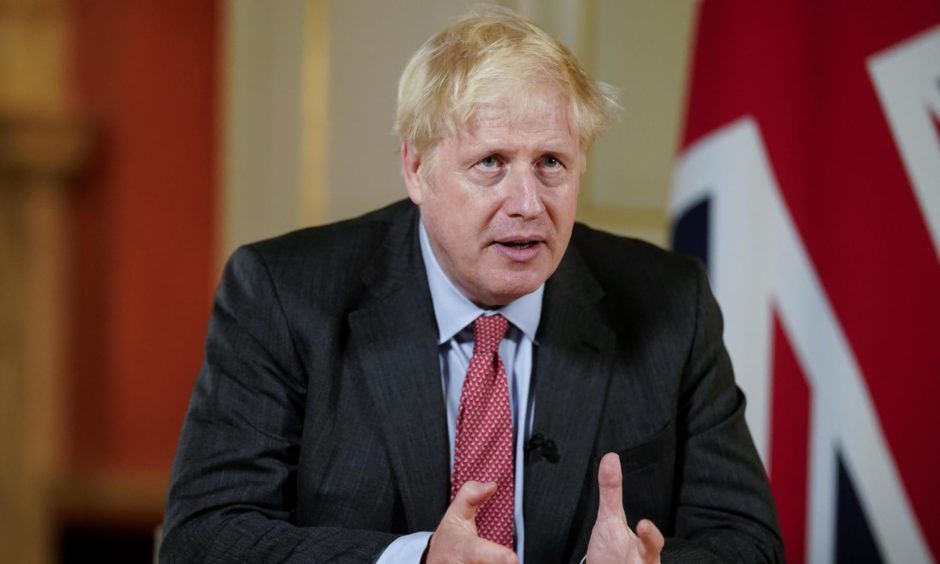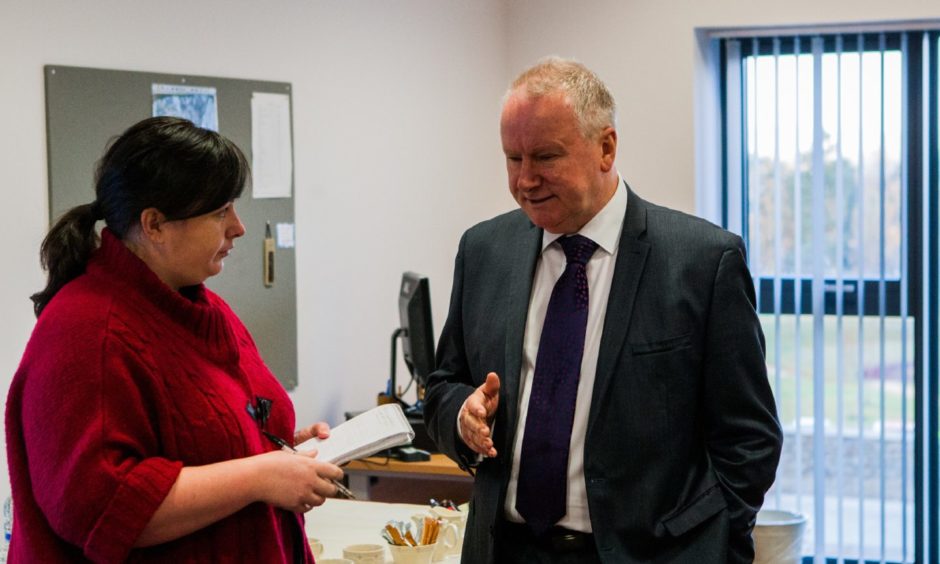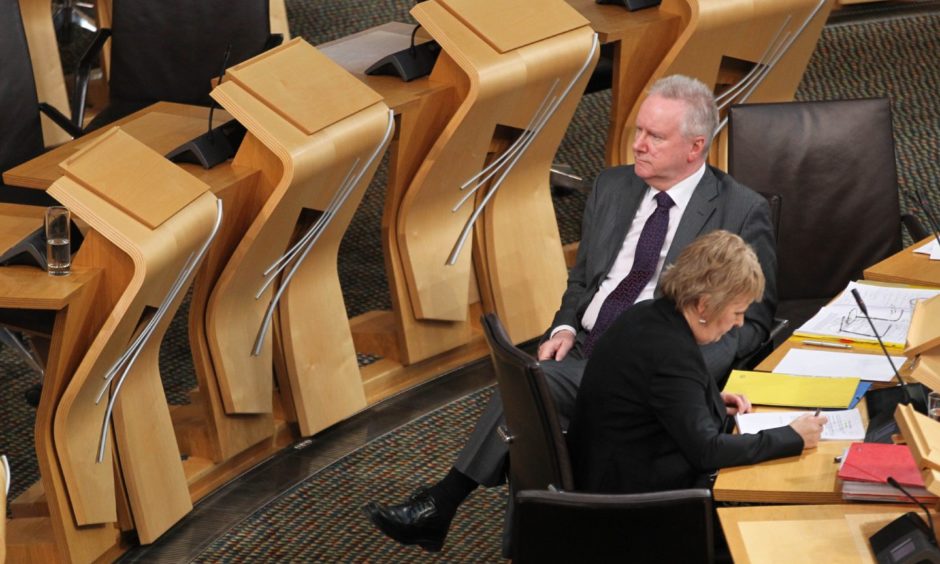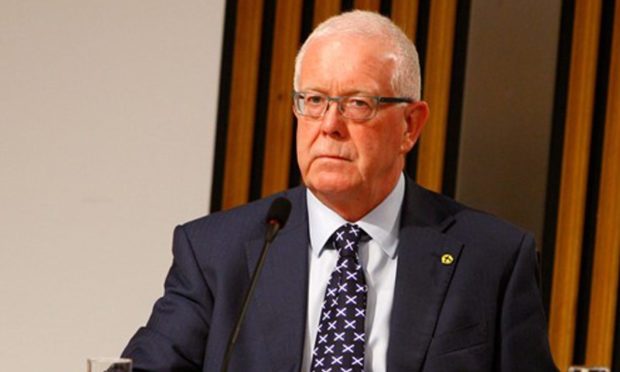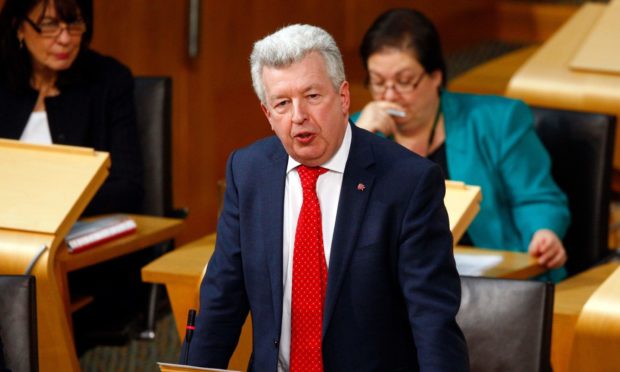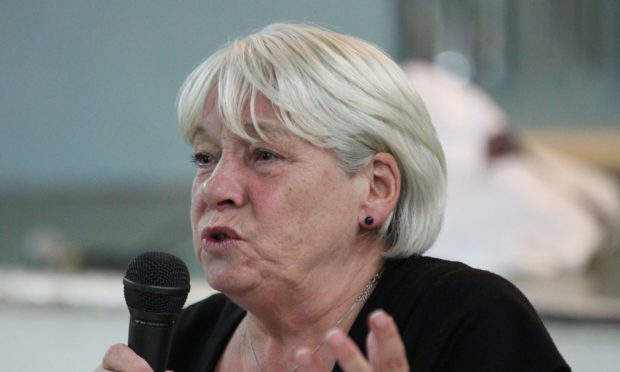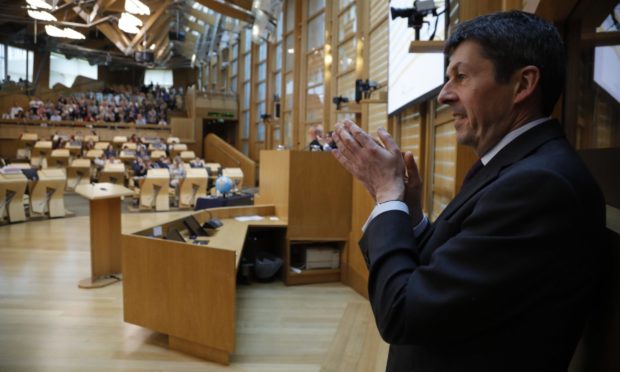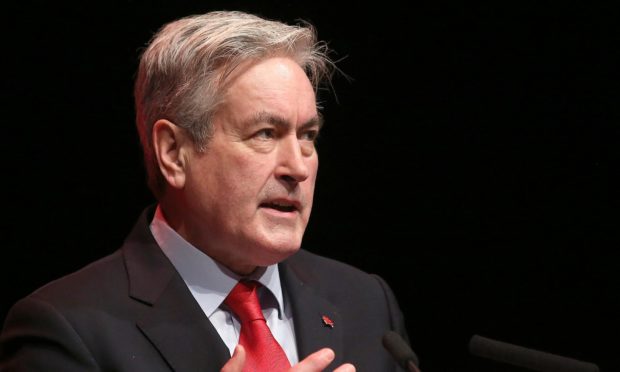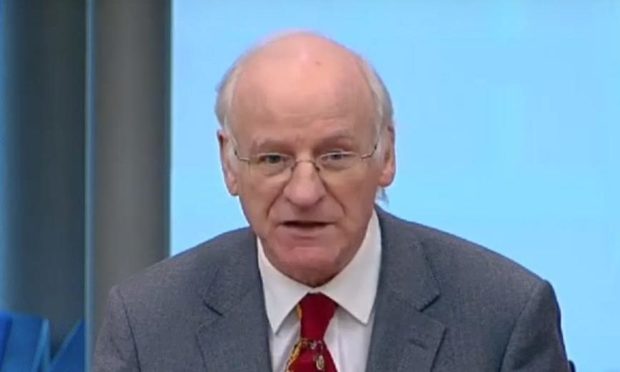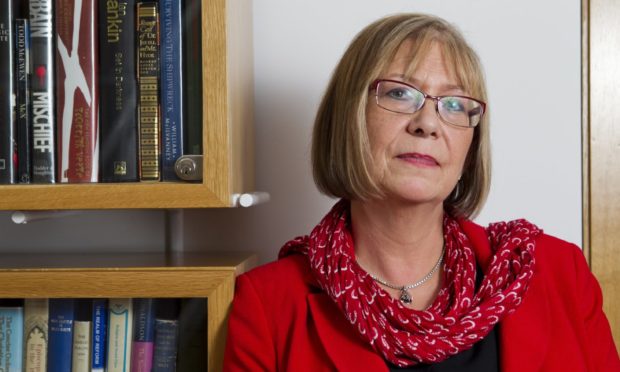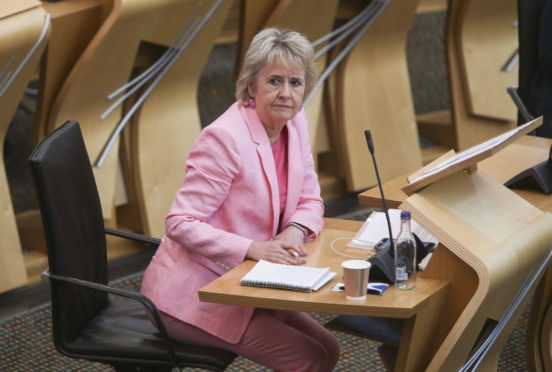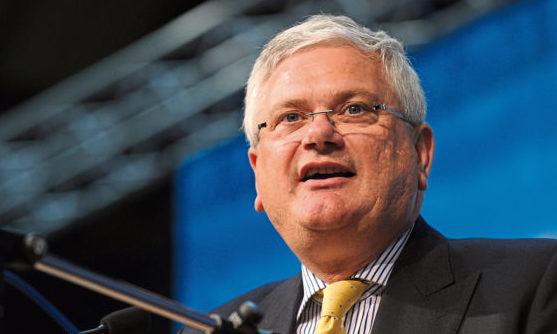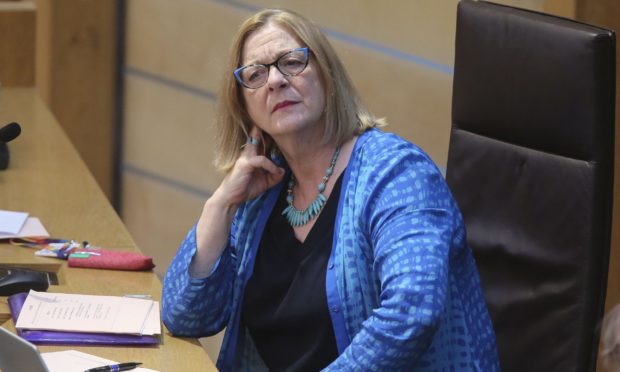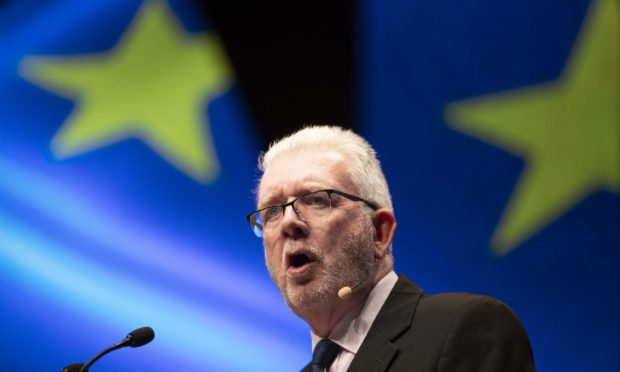Former Health Secretary Alex Neil says MSPs need to be more independent-minded as “too many people are just running with the party line even when they know the party line is wrong”.
The veteran politician is widely regarded as one of the most outspoken of the SNP government’s backbenchers in Holyrood and is one of the party’s “big hitters” to announce their departure from the Scottish Parliament before this year’s Holyrood election.
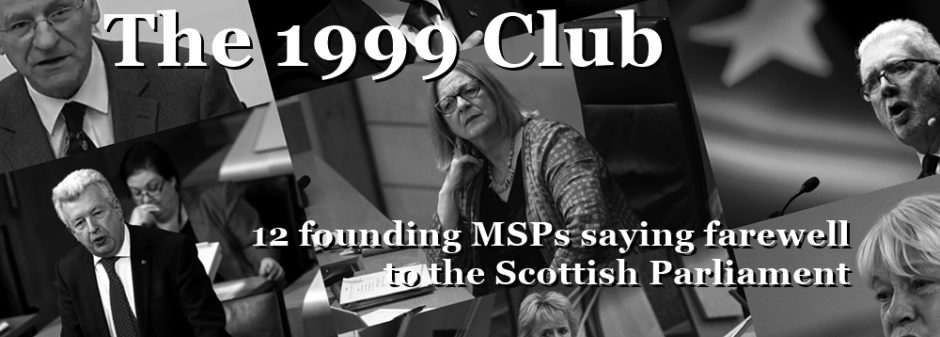
He believes the Scottish Parliament lacks independent voices and that party leaderships wield “far too much control”, to the detriment of the institution.
In our wide-ranging series of interviews to mark the retirement of MSPs from the so-called 1999 club, Mr Neil said the personality of Prime Minister Boris Johnson is the “real driver for independence in Scotland”.
But the SNP politician admits his party “still have a bit of work to do in persuading people that an independent Scotland is economically better off than being part of the UK”.
He also claims First Minister Nicola Sturgeon has made “policy mistakes” in her handling of the coronavirus pandemic but that “everybody would have made mistakes in that situation”.
He said: “I think we need radical reform of how the parliament is run. Too many people are just running with the party line even when they know the party line is wrong.
“We have a responsibility to our parties as well because they get us elected.
“That responsibility is to stick to the values and principles of the party and what we’re fighting for but it doesn’t mean on every single issue we all have to act like stooges.
“We’ve got to be much more independent and I think it would enhance the reputation of the parliament.
“By being independent, I don’t mean being a rebel for the sake of it but I think people need to speak up more on issues that they feel strongly about rather than being cowed by the whips and the party leadership.”
PM ‘totally out of his depth’
Recent polling has shown consistent and increased support for independence, in a political climate dominated by the coronavirus pandemic and Brexit.
Mr Neil described Prime Minister Boris Johnson as the “real driver for independence in Scotland”.
“Clearly he is totally out of his depth in dealing with this crisis. I don’t think he is up to the job of Prime Minister, quite frankly, and I think he has shown that without any doubt,” he added.
“He might have been a good Prime Minister in other times but in times of national crisis – a pandemic – he’s absolutely hopeless and I think the Scottish people strongly feel he is a poor advert for the union and that, under him, the union isn’t working for Scotland and that’s what’s driving up support for independence.
“Coronavirus has demonstrated that, in actual fact, we can manage these things in Scotland better than London can.”
Despite recent polls, Mr Neil believes the SNP “still has a bit of work to do” to persuade voters that an independent Scotland is better off financially than being part of the United Kingdom.
When asked by the public how Scotland would have paid for coronavirus support if it were independent, Mr Neil said the country would have followed the examples of London, Europe and the US, and borrowed money.
He said: “If we had our own central bank in Scotland, we could do the same thing.”
‘EU is primarily for the big boys’
The SNP politician famously defied his party’s official stance on Brexit, by voting in favour of leaving the EU.
He said he has “never understood why people who don’t want to be run by London instead want to be run by Brussels”.
The way the EU has treated smaller countries, such as Greece, with “contempt” is “appalling”, according to the senior government minister.
He said: “The EU these days is primarily for the big boys so small independent nations, like Scotland when it becomes independent, would be far better off joining the European Free Trade Association (EFTA).”
Biography
Name: Alex Neil
Age: 69
Party: SNP
Member: Airdrie and Shotts.
Born: Irvine, Ayrshire.
Education: Studied economics at Dundee University.
Career: Held a range of roles in the business sector before entering the Scottish Parliament, including as an economic consultant between 1987 and 1999.
Political career: Served as the SNP regional list MSP for Central Scotland (1999-2011). Elected as MSP for Airdrie and Shotts in 2011, a seat he has represented ever since. He has held four ministerial appointments – Minister for Housing and Communities, Cabinet Secretary for Infrastructure and Capital Investment, Cabinet Secretary for Health and Wellbeing and Cabinet Secretary for Social Justice, Communities and Pensioners’ Rights
The 69-year-old said that after more than 20 years in the Scottish Parliament, he feels he has been “going round the same block again” and now is the time to retire.
He said: “Before I went into parliament I had a successful business career, running my own economic consultancy business, and I want to go back into business on a part-time basis.
“I want to do a lot more travelling than I’ve been able to do in the last 22 years and I now have two grandchildren I didn’t have before and I want to spend more time with them because they’re good company.”
The opening of the first elected Scottish Parliament in 1999 is “etched” in his memory as a “great day for Scotland”.
He said: “When Winnie (Ewing) opened it, with ‘the Scottish Parliament is reconvened’, it brought tears to your eyes with pride that we had achieved something many of us had been fighting for, for a long time.”
With such a long career in the political trenches, Mr Neil looks back proudly on several achievements, including work he did as a backbencher in 1999 to make public appointments more open and transparent and also the introduction of a bill to control dogs following a spate of fatal attacks across the country.
He has held four ministerial appointments, including Cabinet Secretary for Infrastructure, in which he describes “major achievements” including identifying the funding to dual the A9 between Perth and Inverness, and the A96 between Aberdeen and Inverness, due to be completed by 2025 and 2030, respectively.
He said: “When that is completed, that means every city in Scotland is connected to the road network of dual carriageways and that will be a major achievement.”
The SNP backbencher believes the single biggest change to Scottish politics was the creation of the Scottish Parliament, which has become the “national parliament of Scotland”.
He said: “People look to their MSPs and the Scottish Parliament, not to Westminster, for the leadership these days.
“They see Westminster as increasingly remote, it’s run by a party that Scotland has never voted for as a majority party for 80 years, it’s run by a bunch of toff boys whose values are alien to the mainstream values in Scotland.
“They see the Scottish Parliament, with all its faults, as speaking up for Scotland and also we’re able to reach members of the Scottish Parliament collectively and individually much more easily than they can MPs.
“Westminster is increasingly alien to people, the culture, the shenanigans, the irrelevance of Westminster, the fact that Scotland will always be outvoted in Westminster.
“All of these factors are getting through to the Scottish people and they’re personified and encapsulated in the character of Boris Johnson.”
